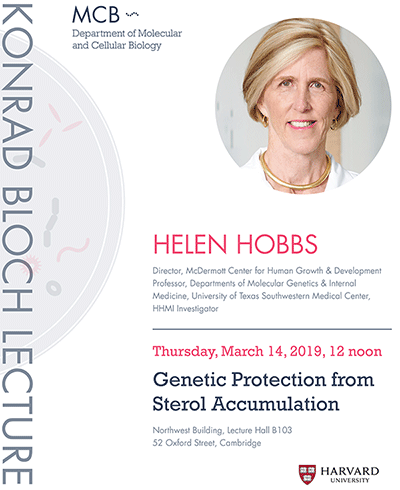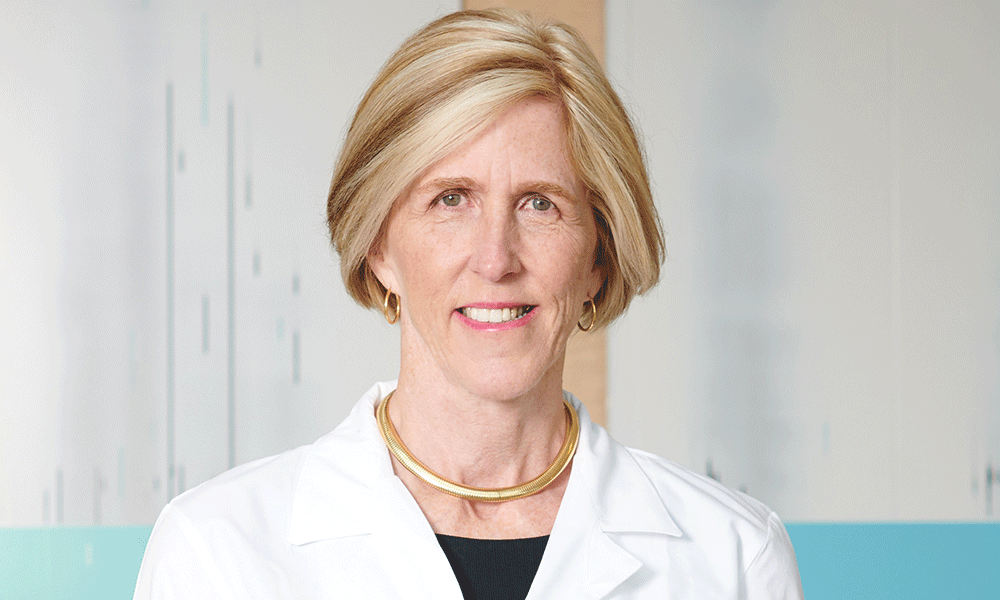Following in the footsteps of our esteemed former colleague, Konrad Bloch, UT Southwestern Professor and HHMI Investigator Helen Hobbs investigates the genetic determinants of cholesterol levels and cardiovascular disease.
At UTSW, Hobbs founded the Dallas Heart Study, which has revealed correlations between genetic alleles in the population and cholesterol levels in the plasma. Among her discoveries is that a mutation in the peptidase PCKS9 results in lower Low-Density Lipoprotein (LDL) cholesterol levels and reduced risk of cardiovascular disease, leading to the development of a new class of cholesterol lowering drugs. She has also discovered genetic variants leading to fatty liver disease. Hobbs is the recipient of multiple prestigious awards, including the 2016 Breakthrough Prize for Life Sciences.

by Rich Losick
About the Konrad Bloch Lecture
by Jim Henle


